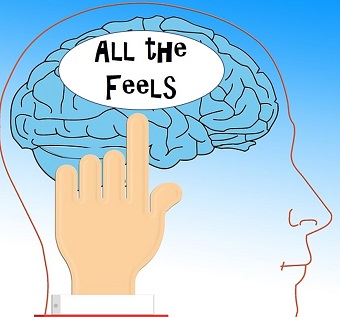CHRISTIAN LIFE & GROWTH
Mental Health and Transitions
Introduction and Personality Disorders
By T. Jaden Ozwell

Part 2: Depression
Part 3: Anxiety Disorders
Part 4: The Church

Mental illness is always a difficult topic to have a discussion about. Those who have a mental illness are often wary of speaking of it because of the stigma and poor responses that society — and the church — often give. Those who do not have mental illness often struggle, understandably, to grasp how such illnesses affect the daily lives of their parishioners, friends, and loved ones.
As a twenty-something with mental illness, I would like to offer my perspective to the discussion. Specifically, I'd like to speak to the ways mental illness affects the life transitions which twenty-somethings — and in many ways all ages — already find so daunting. Transitioning from school to work, from home to on-your-own, from one type of "free" to another and very different type of "free," on and on to marriage and kids and...and...
My own story is the only one I can speak from, so I will use myself as examples throughout this series. I have been diagnosed with a Personality Disorder, Major Depressive Disorder, and a couple kinds of Anxiety Disorders to boot. So, I will write on each of these major sectors of mental illness, with a fourth and final article addressing how these disorders have affected me spiritually, and how the church might be of help.
I will start with how my Personality Disorder has affected my twenty-something transitional experiences.
Personality Disorders
Personality Disorders come in many forms, but obviously the one thing they all have in common is that they affect your personality, and by extension your identity. So, when something happens that may affect your identity, it can cause all sorts of trouble. It makes transitions just that much more chaotic.
Take, for example, starting a new job. Any average person can feel a wide range of emotions during this process. You leave your last job, about which you might be happy or a bit sad or even angry, and start something new, about which you are likely somewhat apprehensive, and hopefully excited as well.
As someone with a personality disorder, however, that is not all I feel. My identity is being disrupted. A new corporation or position means a new piece of me being added, and an old one being taken away. That is true for everyone, but I am aware of every step. My personality is like bad software on a functioning computer. Instead of everything running in the background like it's supposed to, every change shows up as an error message that has to be identified and processed by hand. Short version: there are far too many emotions coming and going to realistically handle.
Now, there are many different types of personality disorders, so the end result of this "bad software" will be different for each person, but the basic principle remains: an already multi-layered experience of changing jobs becomes an overwhelming task.
Because it is so overwhelming, I, and many others with personality disorders, become highly adept at "shutting down" — just going through the motions and ignoring the mental/emotional roller coaster. But if you do that for too long, it just builds up and later you will explode — in rage, spending sprees, depression, psychosis, unhealthy alcohol use, drugs, risky sexual behaviors, self-harm, suicide attempts...the list goes on. Your personal fallback or poison will come storming in to release everything you have been shutting out.
For me the question is always trying to find the balance of how much I can actually allow myself to shut down without putting myself in an unsafe place. The reality is that I cannot experience the full emotional/mental roller coaster of a job change and successfully change jobs. With further therapy formulated for my specific personality disorder, I hope to be able to do that some day, but right now that just isn't possible.
So what does that mean for those who are around, friends with, or loved ones of someone with a personality disorder? Specifics will depend a lot on which personality disorder the person has, but there are a few general things that apply to most.
1. Be very open to explanation from the person. To have someone even trying to openly and honestly understand is so encouraging, and it reduces the loneliness inherent to any uncommon illness. This includes openness to hearing explanations of decisions that you may think are unwise — not only may that decision have been made because of the symptoms of the disorder, it may have be made in an attempt to reduce symptoms.
2. If you have a relationship in which this would be acceptable, encourage the person to enter therapy appropriate for their personality disorder. In the world of psychiatry, personality disorders can be daunting, but they are treatable, with the possibility of greatly improved functioning.
3. Validate their emotions whenever possible. Acknowledge that what they are feeling is real, even though it may not be how you would feel given a certain situation. A person with a personality disorder is 100% responsible for how they act on their emotions, but the emotions themselves often take many years to learn to control.
4. As with anyone, pray for them, especially that their lives would not be so overwhelming.
To conclude, my personality disorder makes all of my transitions a huge emotional balancing act, where the stakes are me going off my personal deep end. It is a scary, exhausting experience that few can relate to, but which can be carried in community. An open heart and listening ear can be a wonderful balm to a hurting soul.
Next Week: Life Transitions in the Midst of Depression
Image Credit: geralt; "brain turn on"; Creative Commons
Tags: Biblical-Truth | Christian-Life | Depression | Hardships | Health-Wellness | Personal-Life | Personal-Relationships
comments powered by Disqus
Published on 4-13-15

